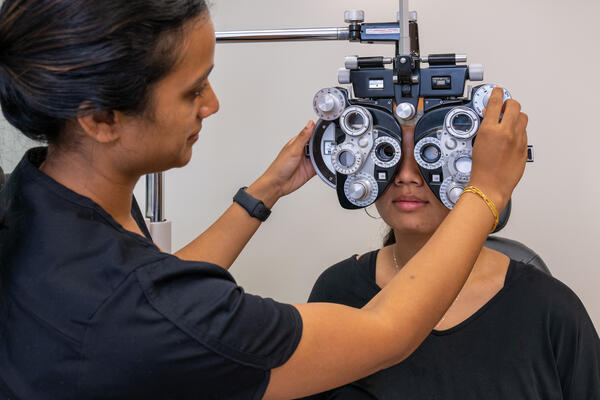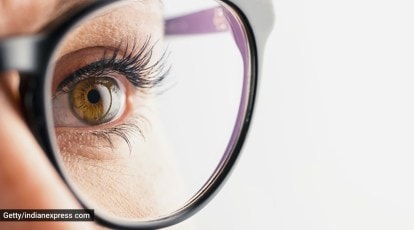Andalusia Eye Facility: Innovating Vision Take Care Of Community Wellness
Andalusia Eye Facility: Innovating Vision Take Care Of Community Wellness
Blog Article
Is Refractive Surgical Procedure Right for You? Factors to Think About for Better Eyecare
In the realm of eye treatment, the choice to go through refractive surgical treatment is a significant one that demands thoughtful consideration. As people seek clarity and liberty from the restraints of rehabilitative lenses, countless elements enter play when identifying the viability of such a treatment. From the ins and outs of one's eye wellness to the ins and outs of everyday practices and individual expectations, each facet holds importance in the wider landscape of refractive surgical treatment candidacy. By examining these vital components with treatment and precision, a clearer course in the direction of notified decision-making arises.
Eye Wellness Assessment
When taking into consideration refractive surgery, a comprehensive eye health examination is important to examine the viability of the procedure for each individual. cardiologist andalusia. This analysis includes a series of evaluations and examinations conducted by an eye care professional to determine the general wellness of the eyes, the presence of any type of hidden conditions, and the stability of the refractive mistake
During the evaluation, numerous factors are thought about, such as the individual's case history, existing eye prescription, corneal density, pupil dimension, and tear film top quality. These evaluations assist to recognize any kind of contraindications to refractive surgical procedure, such as corneal abnormalities, cataracts, or untreated eye infections. Additionally, the examination helps to take care of client expectations pertaining to the potential results of the surgical procedure based upon their distinct eye qualities.
Inevitably, the eye wellness assessment is important in ensuring the security and effectiveness of refractive surgery, as it gives valuable understandings right into the person's eye health condition and aids identify the most appropriate treatment choices for achieving optimal aesthetic end results. (neurologist andalusia)
Way Of Living Evaluation
A thorough way of life evaluation is important in determining the suitability of refractive surgical treatment for an individual's visual adjustment needs. Way of living elements such as occupation, pastimes, and daily activities play a critical duty in the decision-making process pertaining to refractive surgery.
Furthermore, way of life habits such as sporting activities involvement, outside activities, or perhaps skincare routines can affect the recovery procedure and total success of refractive surgical treatment. As an example, individuals who take part in contact sporting activities might require to take added precautions to shield their eyes throughout the recovery period. Additionally, individuals with substantial sun direct exposure may require additional post-operative like prevent problems. By carrying out a detailed lifestyle assessment, eye treatment experts can customize their recommendations and therapy plans to satisfy the special requirements of each client, inevitably leading to boosted aesthetic results and satisfaction.
Expectation Positioning

Patients need to understand that while lots of individuals weblink attain 20/20 vision or far better adhering to refractive surgical treatment, some may still call for glasses for particular tasks like reading or driving at night. Managing these expectations assists stop dissatisfaction and frustration post-surgery, leading to a more favorable total experience for the patient.
Risk Analysis

Elements that might enhance the danger of complications include age, specific medical conditions like autoimmune diseases, unpredictable vision prescription, slim corneas, and unrealistic patient assumptions. In addition, choosing a competent and knowledgeable doctor, following pre and post-operative care guidelines vigilantly, and disclosing any appropriate clinical history can aid alleviate risks.
To decrease the probability of issues, ophthalmologists carry out complete you can find out more pre-operative assessments to recognize any contraindications to surgery. They likewise talk about the prospective dangers and benefits with clients throughout the consultation process. By participating in open interaction and shared decision-making, both the individual and the eye doctor can work together to figure out if refractive surgical treatment is the best selection based upon private threat profiles and desired results.
Examination Importance
Considering the critical duty of educated decision-making in assessing threats and possible problems in refractive surgery, the examination procedure holds significant significance in directing clients towards ideal end results. During the examination, the ophthalmologist examines the patient's eye health and wellness, refractive mistakes, and overall suitability for surgical procedure. This first analysis is essential in identifying one of the most suitable procedure for every individual, taking into consideration aspects such as corneal density, student size, and existing eye problems.
In addition, the assessment acts as a chance for clients to review their assumptions, problems, and any kind of questions they may have pertaining to the surgical treatment. Clear interaction in between the patient and the cosmetic surgeon is vital to ensure practical assumptions and a detailed understanding of the potential risks and benefits included.
In addition, the assessment enables the specialist to explain the different medical alternatives offered, their respective end results, and the post-operative treatment needed. This comprehensive conversation empowers people to make knowledgeable decisions about their eye treatment, resulting in better fulfillment and end results post-surgery.
Final Thought
To conclude, individuals considering refractive surgery must undergo a thorough eye health and wellness assessment, evaluate their way of life practices, align their assumptions with prospective results, assess the affiliated risks, and focus on assessments with eye treatment professionals. These factors play a critical role in figuring out the suitability of refractive surgical treatment for each and every individual, making certain optimum results and fulfillment with the procedure.
Individuals thinking about refractive blog here surgical treatment usually have high assumptions concerning the end results, expecting best vision without the need for glasses or call lenses. While refractive surgery can substantially improve vision and reduce dependency on visual aids, it is vital for patients to recognize that results may vary based on private aspects such as the level of refractive mistake, corneal thickness, and general eye wellness.
By involving in open communication and shared decision-making, both the eye doctor and the patient can work together to determine if refractive surgery is the best choice based on individual threat accounts and preferred end results.
Considering the critical duty of educated decision-making in assessing threats and potential issues in refractive surgical procedure, the assessment process holds substantial relevance in directing people in the direction of optimal results. Throughout the assessment, the ophthalmologist reviews the person's eye health and wellness, refractive errors, and general viability for surgical treatment.
Report this page